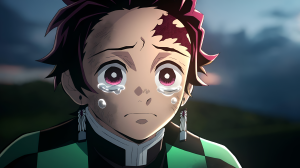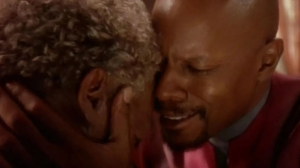Yesterday, the comic book industry lost one of its legendary creators when Len Wein passed away at the age of the 69. Wein created some of the most popular and influential characters in superhero comics, including Marvel’s most popular mutant, Wolverine.
Videos by ComicBook.com
Wein created Wolverine in 1974 at a time when mutants were out of vogue. The ongoing X-Men title had done so poorly that it had stopped telling new stories in 1969 and was instead reprinting classic X-Men tales by Stan Lee, Jack Kirby, Roy Thomas, and Neal Adams. So why introduce a new mutant in the pages of The Incredible Hulk?
It turns out Wein put a lot of thought, and forethought, into that decision.
“When I first created Wolverine, I created him as a Canadian mutant specifically so that whoever ended up with the assignment of writing the new X-Men book, should it ever occur, would have a Canadian mutant handy if he wanted him,” Wein said during an interview for the 2013 PBS documentary miniseries Superheroes: A Never-Ending Battle.
A new X-Men series did launch only a year later, and Wein was the one to write it. As intended, he brought Wolverine into the X-Men fold in Giant-Size X-Men #1 in 1975. He also created the rest of the core X-Men mutant cast using designs by artist Dave Cockrum, and he gave each a specifically non-Anglo-American origin: Storm from Kenya, Colossus from the USSR, Nightcrawler from Germany, and the Native American Thunderbird.
As to why Wolverine proved to be so popular, Wein pointed to a moment from the first X-Men movie, where the character was played by Hugh Jackman, as an example.
“I think, from my perspective, what makes Wolverine so attractive is the unpredictability,” Wein said. “The belief that he doesn’t give a damn about anybody but himself and spends his whole life proving that’s not true.”
“In the first film, there’s that great moment where he first meets Rogue and he’s gonna dump her by the side of the road because she’s not what he wants at that moment,” Wein continued. “He’s in search of something else and she goes, ‘Well if you leave me here, where do I go? What do I do?’ And he says, ‘I don’t know.’ And she says, ‘You don’t know, or don’t care?’ And he says, ‘Pick one.’ And I think that kind of describes the character. And yet he spends the rest of the film protecting her and spending the whole thing trying to save her life even though he just said, ‘I don’t care what happens to you.’ It’s not true. Part of him cares about what happens to everyone around him.”
For Jackman, that role – which he reprised for a total of nine films – propelled him into stardom. Jackman shared his own memory of meeting Wein in 2008, and many of Wein’s peers in the comics industry have also paid tribute.








